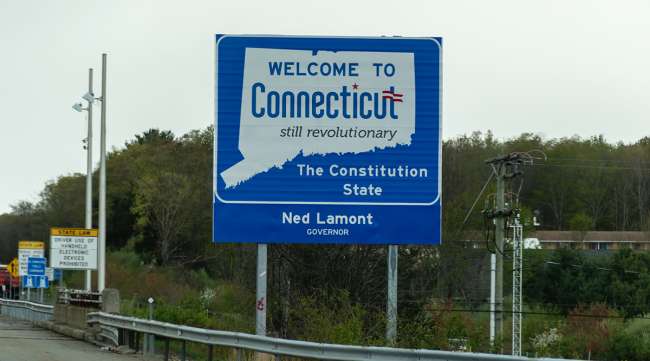Connecticut Post
Connecticut Considers California Standards for Large-Truck Emissions

[Stay on top of transportation news: Get TTNews in your inbox.]
A Connecticut effort to curb carbon-spewing emissions from large trucks by adopting California’s clean air regulations moved forward March 28, despite heavy criticism from opponents who said it could lead to higher costs on Connecticut businesses.
The legislation is one of two components of an overall emissions-reduction plan being pushed by Connecticut Democrats, who hope to get the state back on track to meeting its ambitious targets for slashing greenhouse gas emissions by midcentury.
The other piece of that plan, a bill to expand incentives for electric vehicles while increasing the size of the state’s electric fleet, was advanced last week by members of the Environment Committee.

Lamont
Detractors of the Democrats’ plans, however, have fallen back on familiar arguments that those climate efforts will result in higher prices on everything from gas to new cars and even groceries. Those arguments were largely successful last year at beating back Gov. Ned Lamont’s plans to join a regional initiative to reduce tailpipe emissions — which are the largest source of greenhouse gases.
During the March 28 debate over adopting tougher emissions standards for medium- and heavy-duty trucks, Democrats argued that any impact on inflation would be a necessary price to pay for reducing the noxious fumes that contribute to climate change as well as to local health concerns, such as high rates of asthma in Hartford and New Haven.
“This clean air crisis is potentially the greatest public health crisis that we’re facing right now,” said state Rep. Aimee Berger-Girvalo (D-Ridgefield). “It is not something that I am willing to pass on to my children or your children or your grandchildren, and now is the time that we must make one of two difficult choices.”
Under the federal Clean Air Act, states have the choice of adopting nationwide vehicle emissions standards set by the Environmental Protection Agency or tougher standards set by regulators in California.
Connecticut has already adopted the tougher California standards on most cars and light-duty trucks, including many household pickups. The new bill being considered would adopt California’s standards for trucks weighing over 10,000 pounds, including larger pickups, delivery vans and tractor-trailers.
The two key pieces of Democrats' plans to address greenhouse gas emissions this session have both moved to the floor.
Meanwhile, familiar arguments about inflation -- which helped sink previous climate bills -- are back again. My latest:https://t.co/oaXvWe2VFf — John Moritz (@JohnMoritz18) March 29, 2022
California adopted those standards for larger trucks in 2020, requiring manufacturers and dealers to begin selling zero-emission trucks in 2024, and gradually phasing in higher quotas for zero-emission sales until 2035. In testimony to lawmakers earlier this month, regulators said implementing those standards in Connecticut would have a similar effect to decommissioning a coal-burning power plant.
While the bill before the Connecticut Legislature would require the commissioner of the Department of Energy and Environmental Protection to draft new regulations with the input of lawmakers to keep up with future limits set by California, Republicans argued the legislation would cede their authority to regulators in Sacramento.
“We’re essentially saying whatever California legislators want, that it becomes law without us having any say at all unless you’re lucky enough to be a legislator who just happens to sit on the [Regulation] Review Committee,” said state Rep. Stephen Harding (R-Brookfield).
Requiring more low- or zero-emission trucks to be sold in Connecticut would also increase expenses for businesses that rely on their own truck fleets, which in turn would likely pass those costs on to consumers, Republicans argued.
Want more news? Listen to today's daily briefing above or go here for more info
Democrats, however, noted that Connecticut and more than a dozen other states have already chosen to go with California’s emissions standards over the looser restrictions set by the EPA. States that have adopted the California standards on trucks include New York, New Jersey and Massachusetts.
“These are not 3,000 miles away from us, many of them are in our own neighborhood,” said State Rep. Christine Palm (D-Chester).
Both of the Democrats’ bills dealing with emissions reductions now head to the full Legislature for potential votes on the House and Senate floor, with the last day of the legislative session close to a month away on May 4.
The Environment Committee similarly advanced last year’s Transportation Climate Initiative legislation with the support of Lamont, only to have backing for the bill wither and the legislation die without receiving a floor vote.
Distributed by Tribune Content Agency, LLC




